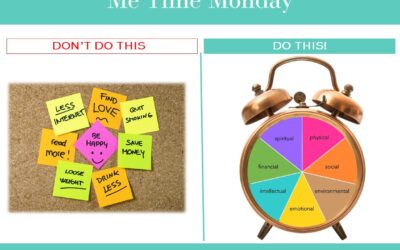 As we celebrate American Independence Day, it brings to mind how dependent we are on our nation’s 65 million caregivers. Over the next 20+ years, the next civil rights issue we will face is a growing older population with more seniors needing care – whether diagnosed with a disease, disorder or living with a disability – and the need to recognize and support their family caregivers. Particularly during July’s National Sandwich Generation Month, we celebrate those who are juggling children, career and caregiving.
As we celebrate American Independence Day, it brings to mind how dependent we are on our nation’s 65 million caregivers. Over the next 20+ years, the next civil rights issue we will face is a growing older population with more seniors needing care – whether diagnosed with a disease, disorder or living with a disability – and the need to recognize and support their family caregivers. Particularly during July’s National Sandwich Generation Month, we celebrate those who are juggling children, career and caregiving.
Which is why we need a Caregiving Movement similar to other movements and milestones in the last century:
 The Women’s Movement: Women won the vote in 1920 and 50 years later entered the workforce in droves creating an evolution in work and family life. Today, women comprise 47 percentof the entire U.S. workforce.
The Women’s Movement: Women won the vote in 1920 and 50 years later entered the workforce in droves creating an evolution in work and family life. Today, women comprise 47 percentof the entire U.S. workforce.
 Civil Rights Movement: Despite becoming emancipated by President Abraham Lincoln in 1863, African Americans took to the streets and the mall in the nation’s capital 100 years later in 1963 to declare their equality led by Reverend Martin Luther King, Jr. Today, we have had our first African American President and more than 40 Congress men and women of African American descent.
Civil Rights Movement: Despite becoming emancipated by President Abraham Lincoln in 1863, African Americans took to the streets and the mall in the nation’s capital 100 years later in 1963 to declare their equality led by Reverend Martin Luther King, Jr. Today, we have had our first African American President and more than 40 Congress men and women of African American descent.
 Gay and Lesbian Rights Movement: In the 1980s there was a cultural shift in the LGBTQ community and Gay Pride parades became more celebratory than radical events. In June 2013, the Supreme Court struck down a California law barring same-sex couples from marrying and receiving federal benefits as part of their union.
Gay and Lesbian Rights Movement: In the 1980s there was a cultural shift in the LGBTQ community and Gay Pride parades became more celebratory than radical events. In June 2013, the Supreme Court struck down a California law barring same-sex couples from marrying and receiving federal benefits as part of their union.
A Pew Research poll shows 45 percent of Americans approve of the Supreme Court’s decision – up more than half from Gallup polls on the topic 20 years ago.
The Caregiving Movement
What’s next? Family caregivers comprise the largest volunteer health care workforce in our country – 65 million strong. Caregiving also crosses all socio-economic boundaries – it is blind to race, religion, age, geographic location, sexual orientation and income bracket. According to AARP, the annual societal value for the unpaid hours of care provided is more than $450 billion – $42 billion more than the sales of Wal-Mart, the nation’s largest retailer.
More than 240 years ago, our forefathers set in motion the greatest human experiment in civil liberty the world has ever known. Every July 4th we celebrate their courage, their vision, their dreams for a future where all can live in freedom.
In the late 1700s, the average lifespan was only age 40 (although if you reached age 50 you could expect to live another 20 years). I doubt any of the Founding Fathers expected the longevity we experience today where 20 percent of those age 65 will live to 90 and 1 in every 50 boomer women will reach age 100.
However, of the seven most well-known Founding Fathers, only two did not reach their 80s (George Washington died of illness at 67 and Alexander Hamilton was killed in a duel at age 49). The remaining five lived to be octogenarians: John Jay (83), Benjamin Franklin (84) and James Madison (85), and even more coincidentally, both Thomas Jefferson (83) and John Adams (90) died not only at unexpectedly old ages but also on the same iconic day – July 4, 1826.
 Kicking Off the Caregiving Movement with the Caregiver Bill of Rights
Kicking Off the Caregiving Movement with the Caregiver Bill of Rights
While our forefathers may have been as unprepared for the aging of America as we are today, they gave us the guidelines to create a Caregiving Movement. With that premise in mind, I present to you my version of the Caregiver Bill of Rights.
-
The right to have balance between caring for my loved one and caring for myself.
This includes my desire to avoid the “Caregiver Achilles Heel” – reluctance to ask for and accept help. I will maintain routines and plans as best I can and seek help so as to not losemyself while on this caregiving journey. I will accept help provided to me by family and friends so I do not feel I am all alone.
-
The right to receive a financial break or tax credit for caring full-time for my loved one.
In the same way Americans are granted tax credits for dependent children, I should be granted tax credits for caring for parents who are dependent on me for their constant care.
-
The right to work for an employer that understands and supports caregivers.
As part an aging workforce, more and more of us will face the life event of caregiving while on the job. Today, 7 out of 10 caregivers are juggling work and caregiving and represent 15 percent of the U.S. labor force. I have the right to work for an employer that will provide me with the employee assistance to maintain my work performance and productivity, my own health and wellness, and support for my loved one without fear of reprisal or dismissal.
-
The right to expect the nation’s legislators to acknowledge the valuable service I perform and to enact policies that not only support those with the illness or disability but support their family caregivers as well.
This includes acknowledging my role as a first responder in the long-term-care crisis in this country. I should expect our legislators to ease the burden of caregiving, especially financially, so I can continue to perform as part of the largest volunteer health care workforce in the country.
-
The right to expect my loved one’s medical advisors and health care professionals to recognize my critical role as part of the primary and long-term care team.
I should expect health care professionals to communicate with me without violating my loved one’s privacy rights so I can best care for my loved one. Especially when it comes to transitions of care, I become a critical player in helping my loved one – the patient – transition from hospital to home or other facility and to maintain their health, medication compliance and other aspects of care that will decrease hospital readmissions. According to AARP, as of today 29 states have passed into law the CARE Act which requires health care providers to include the family caregiver information in a patient’s clinical chart, provide timely notification on discharge and help with family caregiver training needs to ensure quality of care for older patients at home.
-
The right to easily find resources that will help me in my caregiving journey.
Whether these services are provided by public or private organizations, every caregiver should know where to turn to get the help and education they need at whatever stage of caregiving they are encountering.
-
The right to not take on the financial burden of caregiving all by myself.
I should not have to put my financial future at risk to care for my loved one today. It should be the obligation of elected officials and the health care system to ensure costs of care should not bankrupt our citizens and our country.
-
The right to make choices that will help me manage my stress without feeling guilt or depression that I am focusing on myself at times rather than solely on my loved one.
This includes the right to take a break – for a few minutes or a few days – and to avoid feeling guilty to care myself as well as my loved one. The need to seek respite in my caregiving duties is essential to my ability to continue caring for my loved one long-term.
-
The right to speak up and expect my close circle of friends and family to understand my caregiving role and to support me in any way they can.
This includes the right to expect I can reach out to them so I do not feel alone. Also that my spouse, my adult children, my siblings, my co-workers and my close friends will lift me up when I am down and help me keep going on this caregiving journey.
-
The right to expect “life, liberty and the pursuit of happiness” even while so much of my time, energy and attention is going to care for my loved one.
©2017 Sherri Snelling





0 Comments
Trackbacks/Pingbacks